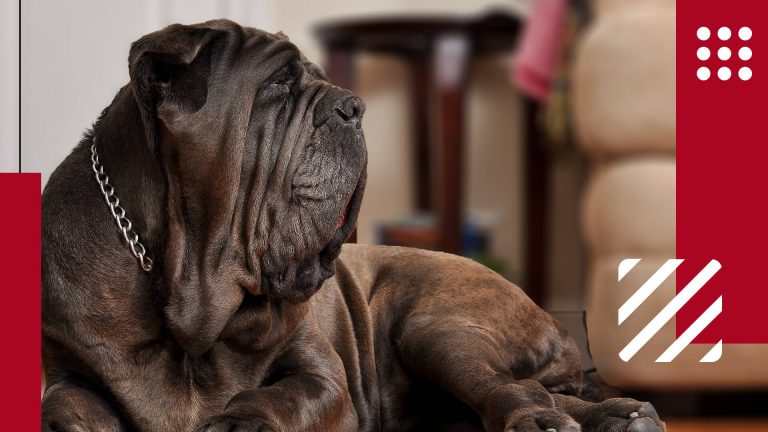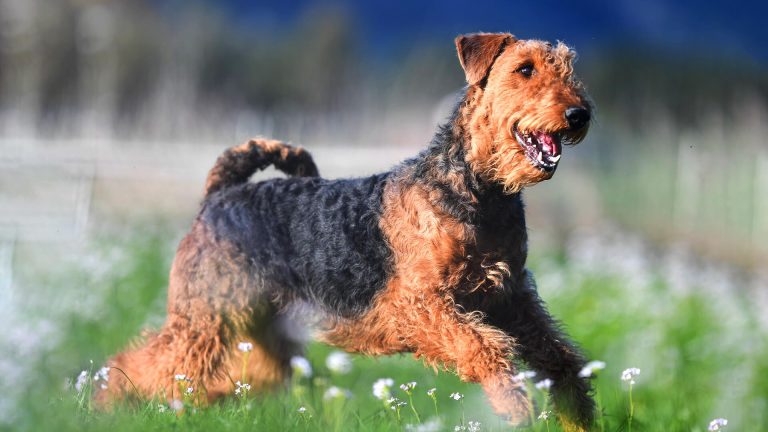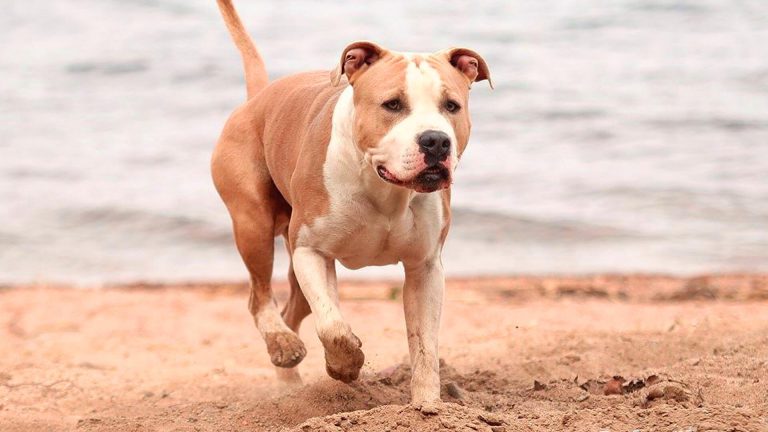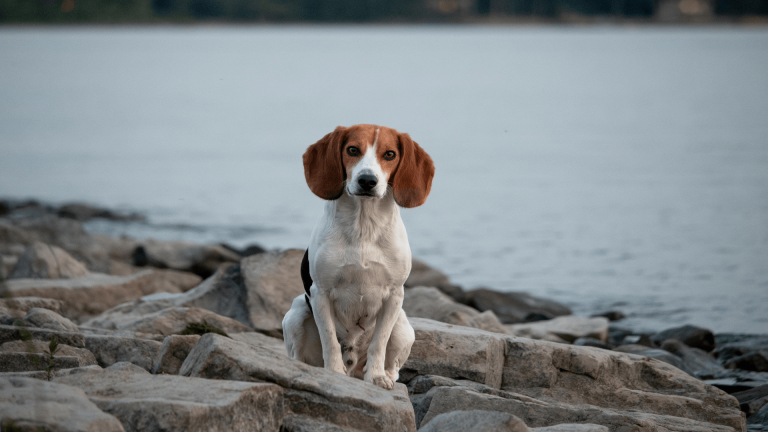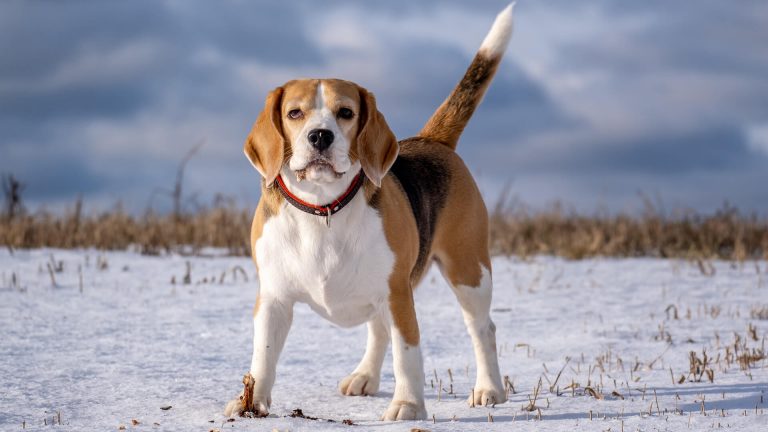The Affenpinscher is a small breed of dog that originated in Germany. The breed's name is derived from the German words "Affe" meaning monkey and "Pinscher" meaning terrier, which refers to the breed's somewhat monkey-like appearance. The Affenpinscher is thought to be one of the oldest toy breeds, with a history dating back to the 17th century. The breed was originally developed to hunt small rodents and other pests, and was also used as a watchdog. Today, the Affenpinscher is primarily kept as a companion dog. They are known for their playful and energetic personalities and make great pets for families with children.
Distinctive Features of Affenpinscher
| Breed Name | Affenpinscher |
| Lifespan | Up to 15 years |
| Size | Up to 11 inches |
| Weight | 7-11 pounds |
| Coat | Harsh and wiry, often referred to as "monkey-like" |
| Color | Various colors including black, gray, silver, and beige |
| Health risk | Moderate (may be prone to certain health issues like patellar luxation and dental problems) |
| Unique trait | Terrier-like appearance with a distinctive monkey-like expression |
| Famous for | Playful and mischievous personality |
| Temperament | Confident, curious, and affectionate |
| Maintenance | Moderate (requires regular grooming and exercise) |
| Adaptability | Moderate (can adapt to different living environments, but may have a preference for indoor living) |
| Behavior | Generally not recommended for toddlers, good for adults, good with socialization |
| Personality | Alert, lively, and fearless |
| Social | May be reserved with strangers and can be aggressive towards other dogs if not properly socialized |
The Affenpinscher is a small, compact dog with a distinctive appearance. They have a rough, wiry coat that is typically black, but may also be gray, silver, red, fawn, or beige. The breed has a shaggy, monkey-like appearance, with a long, shaggy mane around the neck and chest. Affenpinschers have a square-shaped head with a short, upturned nose, and small, dark eyes that are set close together. The breed has small, triangular ears that are typically cropped, although some Affenpinschers may have uncropped ears.
In terms of size, Affenpinschers typically weigh between 7 and 10 pounds and stand about 9 to 11 inches tall at the shoulder. They are considered a toy breed. The lifespan of an Affenpinscher is typically around 12 to 15 years.
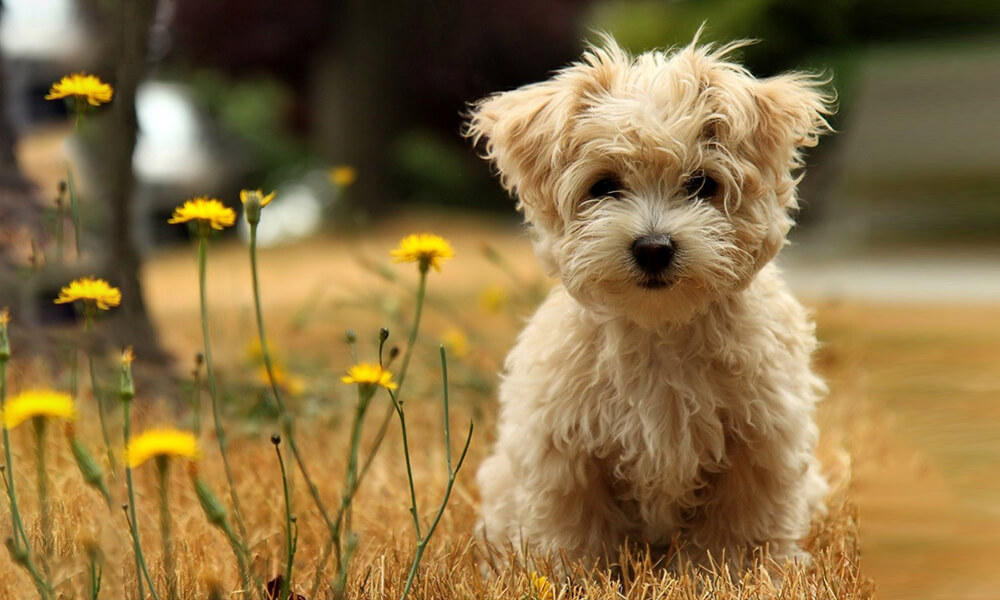
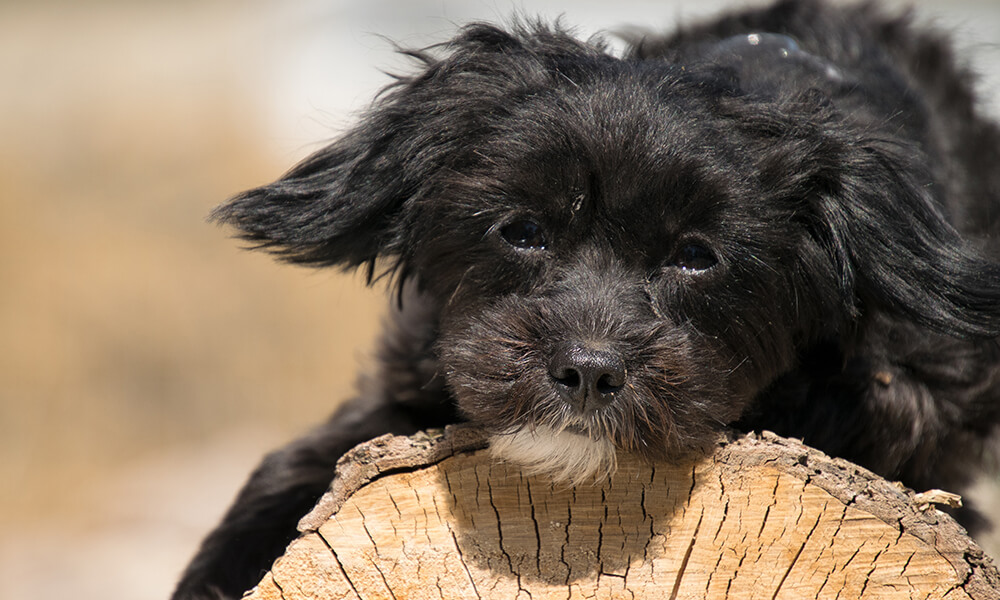
How to Take Care of Pet Affenpinscher Dog?
Taking care of a pet Affenpinscher dog involves several important aspects. Here are some guidelines:
How to Setup Habitat for Pet Affenpinscher Dog?
As a small breed, Affenpinschers do not require a large living space and can be happy in a variety of living situations, including apartments, houses, and even small urban areas. They do well with a small yard or a daily walk, but do not need a lot of space to run and play.
To set up a habitat for your Affenpinscher, you will need to provide the following:
- A crate or small, safe indoor space: Affenpinschers do well with crate training, which can be helpful for housetraining and for providing a safe place for your dog when you are not home. A crate should be large enough for your dog to stand up, turn around, and lie down comfortably.
- A bed: Affenpinschers are small dogs and do not need a large bed, but they will appreciate having a comfortable place to rest. A small, soft, and supportive bed will be appreciated.
- Toys and chew toys: Affenpinschers are active and energetic dogs, and they will enjoy having a variety of toys to play with. Chew toys can also help keep their teeth clean and healthy.
- Access to water: Make sure that your Affenpinscher has access to fresh water at all times.
- A secure outdoor space: If you have a yard, it should be securely fenced to prevent your Affenpinscher from escaping.
By providing these basic needs for your Affenpinscher, you can create a comfortable and happy habitat for your pet.
What to Feed Pet Affenpinscher Dog?
It is important to feed your Affenpinscher a high-quality diet that meets their nutritional needs. As a small breed, Affenpinschers have a high metabolism and require a diet that is rich in protein and other nutrients to support their energy needs.
When selecting a food for your Affenpinscher, look for a brand that uses high-quality protein sources, such as meat or fish, as the first ingredient. Avoid foods that use cheap fillers, such as corn or wheat, as the main ingredient. It is also a good idea to choose a food that is formulated specifically for small breeds, as these formulas are typically more nutrient-dense to meet the needs of smaller dogs. Some international pet foods brands like - Orijen, Pedigree, Primal, and Nutro can be considered.
In addition to dry kibble, you can also include wet food, treats, and homemade meals in your Affenpinscher's diet. Just be sure that you are providing a balanced and nutritious diet for your pet.
It is also important to pay attention to portion sizes when feeding your Affenpinscher. Overfeeding can lead to obesity, which can cause a range of health problems for small breeds like the Affenpinscher. Follow the feeding recommendations on the back of the bag or can of your pet food.
What to Avoid Feeding Pet Affenpinscher Dog?
There are certain foods that you should avoid feeding to your Affenpinscher, as they can be harmful or toxic to the breed. Here are a few things to avoid:
- Chocolate: Chocolate contains a chemical called theobromine, which can be toxic to dogs. Dark chocolate and unsweetened baking chocolate contain higher levels of theobromine and can be especially dangerous to dogs.
- Grapes and raisins: Grapes and raisins can cause kidney failure in dogs, even in small amounts.
- Onions and garlic: These foods contain compounds that can damage dogs' red blood cells, leading to anemia.
- Macadamia nuts: These nuts can cause lethargy, vomiting, hyperthermia, and tremors in dogs.
- Xylitol: This artificial sweetener is toxic to dogs and can cause a rapid insulin release, leading to hypoglycemia (low blood sugar).
It is also a good idea to avoid giving your Affenpinscher bones, as they can splinter and cause blockages or other injuries. Stick to safe, dog-friendly chews and toys to keep your pet entertained and happy.
Brushing, Bathing and Grooming Needs of Pet Affenpinscher Dog
Affenpinschers have a rough, wiry coat that requires regular grooming to maintain its health and appearance. Here are a few things to consider when grooming your Affenpinscher:
- Brushing: Affenpinschers should be brushed at least once a week to prevent tangles and mats. Use a slicker brush or a comb specifically designed for rough-coated breeds to gently remove tangles and knots.
- Bathing: Affenpinschers generally only need to be bathed every few months, or as needed. Use a mild dog shampoo and make sure to rinse thoroughly to prevent skin irritation.
- Nail care: It is important to keep your Affenpinscher's nails trimmed to prevent them from getting too long and causing discomfort or problems walking. If you are unsure how to trim your dog's nails, ask your veterinarian or a professional groomer for guidance.
- Dental care: Regular dental care is important for all dogs, including Affenpinschers. Brush your dog's teeth at least once a week with a toothbrush and toothpaste specifically designed for dogs.
Health Concerns of Pet Affenpinscher Dog?
Like all breeds, Affenpinschers can be prone to certain health problems. Some of the most common health concerns for the breed include:
- Hip dysplasia: This is a genetic condition that affects the hip joints and can cause lameness and pain in affected dogs.
- Eye problems: Affenpinschers can be prone to a number of eye problems, including cataracts, glaucoma, and retinal dysplasia.
- Patellar luxation: Also known as “slipped stifles,” this is a common problem in small dogs. This causes lameness in the leg or an abnormal gait, sort of like a skip or a hop.
- Respiratory problems: Some Affenpinschers may have respiratory issues, such as tracheal collapse or laryngeal paralysis, which can cause breathing difficulties.
- Skin allergies: Affenpinschers can be prone to allergies that cause itchy skin and recurrent skin infections.
- Dental issues: Like many small breeds, Affenpinschers are prone to dental problems, such as tooth decay and gum disease.
To help prevent or manage these health concerns, it is important to provide your Affenpinscher with regular veterinary care, including annual checkups, vaccinations, and parasite prevention. Feeding your dog a high-quality diet and providing plenty of exercise can also help keep your pet healthy and happy. If you notice any changes in your Affenpinscher's behavior or health, be sure to consult with your veterinarian right away.
Training and Playing with Pet Affenpinscher Dog
Affenpinschers are intelligent and energetic dogs that thrive with regular training and playtime. Here are a few tips for training and playing with your Affenpinscher:
- Start training early: It is important to start training your Affenpinscher as soon as you bring them home. Basic obedience training, such as sit, stay, and come, will help your dog learn to follow commands and behave appropriately.
- Use positive reinforcement: Positive reinforcement training, which involves rewarding good behavior with treats and praise, is an effective and humane way to train your Affenpinscher. Avoid using punishment or harsh corrections, as these can lead to fear and aggression in dogs.
- Provide mental stimulation: In addition to physical exercise, it is important to provide your Affenpinscher with mental stimulation through activities such as puzzle toys, training games, and interactive play.
- Play safely: When playing with your Affenpinscher, be sure to use safe toys and play in a secure area to prevent accidents and injuries.
Other Pet to Keep or Avoid with Affenpinscher Dog
Affenpinschers can get along well with other pets, including dogs and cats, as long as they are properly socialized and introduced at a young age. It is important to provide plenty of socialization and positive interactions with other pets to help your Affenpinscher learn to get along with them.
That being said, every dog is unique and may have different needs and preferences when it comes to living with other pets. Some Affenpinschers may do well with a wide variety of pets, while others may be more selective in their social circle. It is important to observe your Affenpinscher's behavior and pay attention to any signs of discomfort or aggression when introducing them to other pets.
If you are considering getting another pet to keep with your Affenpinscher, it is a good idea to do your research and choose a breed or species that is known to be compatible with dogs. You may also want to consider adopting a pet that is already familiar with living with dogs, as this can help make the transition easier for both pets.
Facts About Affenpinscher Dog
Here are a few interesting facts about the Affenpinscher:
- The Affenpinscher is a toy breed that originated in Germany. The breed's name is derived from the German words "Affe" meaning monkey and "Pinscher" meaning terrier, which refers to the breed's somewhat monkey-like appearance.
- The Affenpinscher is one of the oldest toy breeds, with a history dating back to the 17th century. The breed was originally developed to hunt small rodents and other pests, and was also used as a watchdog.
- Affenpinschers are known for their playful and energetic personalities. They are intelligent and can be easy to train, but can also be stubborn at times.
- Affenpinschers have a rough, wiry coat that is typically black, but may also be gray, silver, red, fawn, or beige. The breed has a shaggy, monkey-like appearance, with a long, shaggy mane around the neck and chest.
- In terms of size, Affenpinschers typically weigh between 7 and 11 pounds and stand about 9 to 11 inches tall at the shoulder. They are considered a toy breed.
- The lifespan of an Affenpinscher is typically around 12 to 15 years. Like all breeds, they can be prone to certain health problems, including hip dysplasia, eye problems, patellar luxation, and respiratory issues. It is important for Affenpinscher owners to provide regular veterinary care and feed their dogs a high-quality diet to help ensure their health and longevity.
What it's Like to Keep Affenpinscher as a Pet?
Affenpinschers can make great pets for families with children, as they are energetic, playful, and affectionate. They are also intelligent and can be easy to train, but can also be stubborn at times.
Affenpinschers have a rough, wiry coat that requires regular grooming to maintain its health and appearance. The breed generally only needs to be bathed every few months, or as needed. They should be brushed at least once a week to prevent tangles and mats, and their nails should be trimmed regularly to prevent them from getting too long.
These are energetic, playful, and affectionate dogs that can make great companions for families with children. They do well with regular training, exercise, and socialization, and are generally easy to care for as long as their basic needs are met. If you are considering adding an Affenpinscher to your family, it is a good idea to do your research and consult with a professional pet behaviorist to ensure that this is the right breed for you.
Frequently Asked Questions About Affenpinscher Dog
Here are a few frequently asked questions about Affenpinschers:
Are Affenpinschers good with children?
Generally, Affenpinschers are not recommended for toddlers but they can be good with children as long as they are socialized and introduced to them at a young age. They are energetic and playful, and can make great companions for families with children. It is important to teach children to respect the dog's boundaries and to always supervise interactions to ensure everyone's safety.
Do Affenpinschers bark a lot?
Affenpinschers are known to be vocal and can bark when they are excited or when they sense something out of the ordinary. They may also bark to alert their owners to something or to protect their territory. With proper training and socialization, Affenpinschers can learn to bark less excessively.
Do Affenpinschers shed a lot?
Affenpinschers have a rough, wiry coat that does not shed as much as some other breeds. However, they may shed a small amount of hair, especially during shedding season. Regular brushing can help remove loose hair and keep your Affenpinscher's coat looking healthy and well-maintained.
How much exercise do Affenpinschers need?
Affenpinschers are energetic and playful, and they need regular exercise to stay healthy and happy. A daily walk or playtime in a small yard will help meet their physical needs. It is also important to provide mental stimulation through activities such as puzzle toys and training games.
Are Affenpinschers prone to any health problems?
Like all breeds, Affenpinschers can be prone to certain health problems. Some of the most common health concerns for the breed include hip dysplasia, eye problems, patellar luxation, respiratory issues, skin allergies, and dental issues. It is important to provide your Affenpinscher with regular veterinary care and feed them a high-quality diet to help prevent or manage these health concerns.

